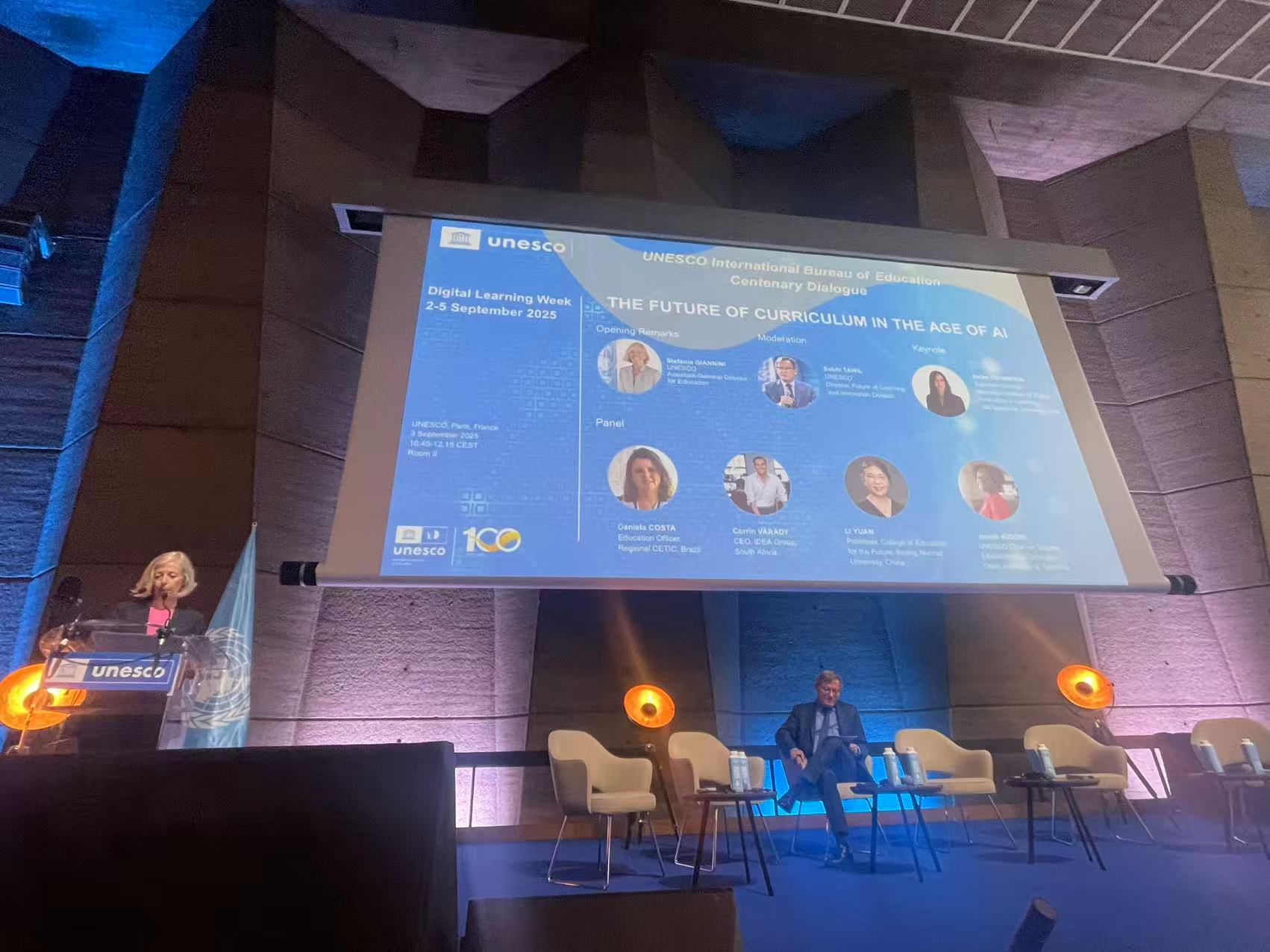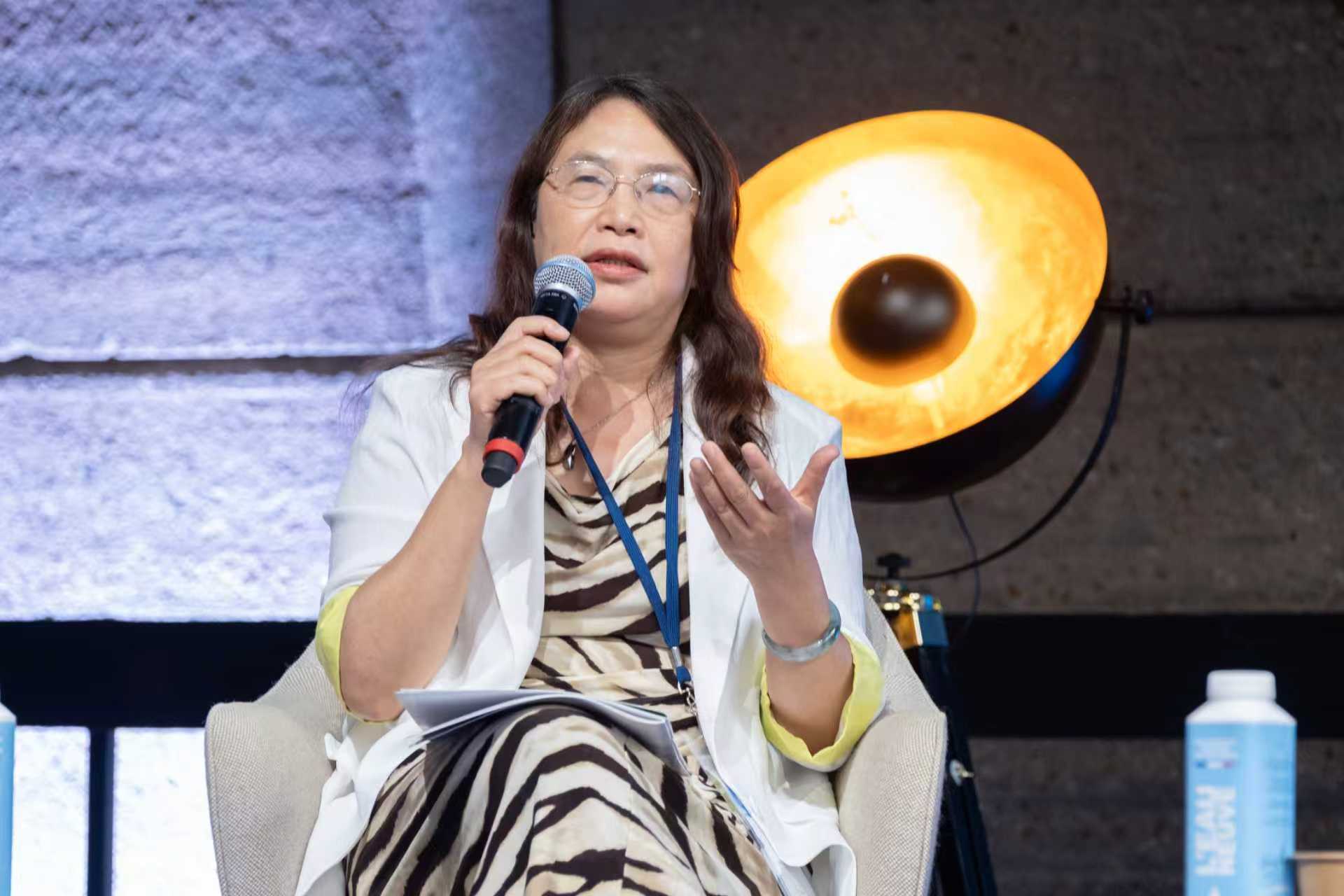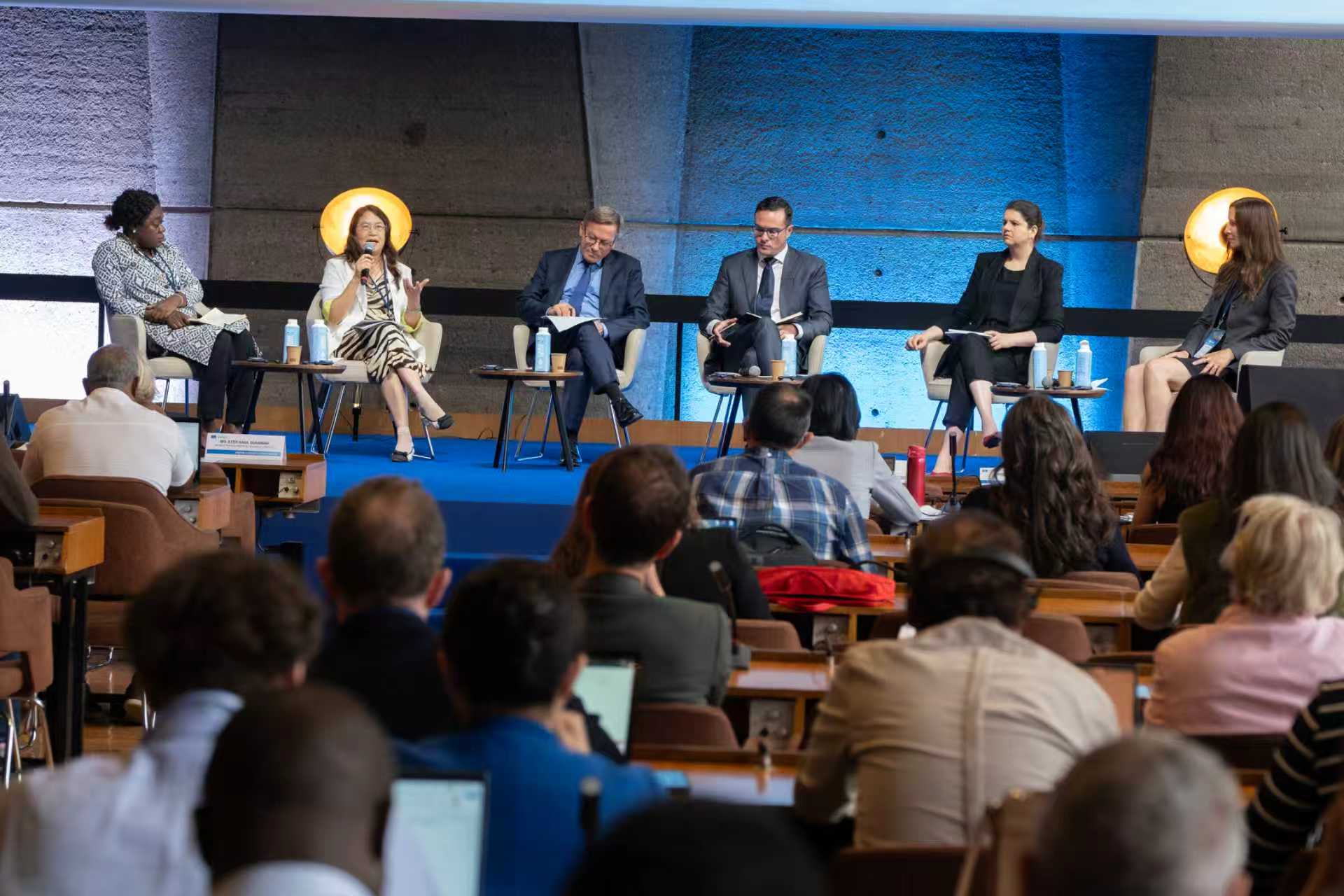On September 3, 2025, the UNESCO International Bureau of Education organized a roundtable discussion titled "The Future of Curriculum in the Age of Artificial Intelligence – An IBE Centenary Dialogue" during UNESCO’s Digital Learning Week in Paris. Experts and scholars from various countries and regions around the world gathered to engage in in-depth discussions on artificial intelligence and the transformation of educational curricula. Professor Yuan Li from the Department of Smart Education at the Future Education School of Beijing Normal University was invited to participate and shared her research findings and insights at the roundtable under the theme "Reflections and Implications of Chinese Teachers’ Use of Generative Artificial Intelligence."
This dialogue, hosted by the International Bureau of Education (IBE), addressed the most pressing issues of our time:
How can artificial intelligence drive inclusive, equitable, and future-oriented curriculum transformation?
How can teachers be effectively supported in adopting AI while safeguarding the humanistic values of education?
In her address, Ms. Stefania Giannini, Assistant Director-General of UNESCO, reflected on the remarkable century-long journey of the IBE. As a pioneering force in global curriculum and pedagogical reform, the IBE has consistently been at the forefront of educational transformation over the past 100 years. She emphasized that "the curriculum is a catalyst for change," stating that "the curriculum can, and must, drive development—ensuring fairness, justice, cohesion, peace, and prosperity in the world." For future-oriented learning, it must begin with curriculum reform. In the age of artificial intelligence, the curriculum is not merely a tool for adapting to change but also the starting point for shaping the future of learning.

Teachers' Authentic Voices: Navigating Between Enthusiasm and Apprehension
Professor Yuan Li presented a study conducted by her team in 2024, which involved in-depth interviews with a group of Chinese primary and secondary school teachers from various disciplines. The research aimed to gain insights into their experiences and feelings while exploring the use of generative AI in their classrooms. Key findings include:
Diverse Applications – Some teachers used AI as a content generator to assist with lesson preparation, while others employed it as a teaching assistant to provide real-time feedback to students. Some also integrated AI into creative projects to stimulate students’ imagination and enhance classroom engagement.
Genuine Concerns and Challenges – Teachers expressed concerns about equity (uneven access to AI tools), reliability (potential errors during classroom use), over-reliance (students excessively depending on AI to complete assignments), ethical and privacy issues, and most notably, the lack of adequate training.
One teacher’s reflection stood out as particularly poignant:
“AI is like a new assistant that never rests, but I’m not sure if I can fully trust it in front of my students.”
This remark reflects the complex and nuanced mindset prevalent among educators today.

Three Key Takeaways for the Future
Based on the research findings, Professor Yuan Li proposed three key recommendations for future teacher support:
Provide Space for Experimentation — Grant teachers both the time and trust to explore the educational value of AI across different subjects and teaching contexts.
Enhance Pedagogical Training — Focus not only on technical skills, but also on discipline-specific professional development to help teachers integrate AI organically into classroom instruction.
Balance Efficiency and Human Values — Since education is fundamentally about inquiry, critical thinking, and human connection, AI should serve as a “springboard” to stimulate deeper learning and creativity, rather than replacing human judgment.
Promoting Global Dialogue, Contributing China's Experience
During the conference, Professor Yuan Li engaged in discussions with experts and scholars from Rwanda, Brazil, South Africa, Tanzania, and the United States, exploring how to drive curriculum innovation through artificial intelligence while ensuring educational equity, humanistic values, and future-oriented development.

As a scholar long engaged in educational technology and future education research, Professor Yuan Li emphasized: "Teachers are willing to explore AI, but they hope it can genuinely enhance rather than diminish their educational role." This perspective not only reflects the sentiments of Chinese educators but also offers valuable insights for global curriculum transformation.



 Last Page
Last Page
 Phone:0756-3621121
Phone:0756-3621121
 Email:ccie@bnu.edu.cn
Email:ccie@bnu.edu.cn